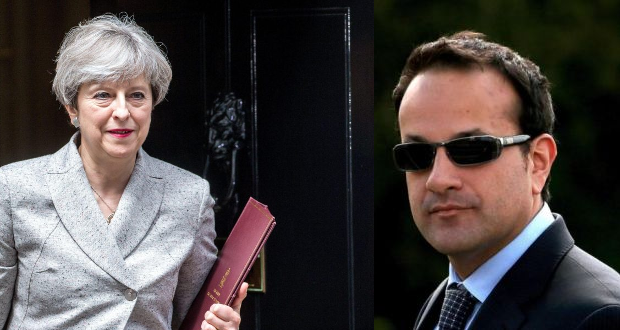It is not quite a Tale of Two Cities, but it might as well be, with the recent elections of Leo Varadkar in Ireland and Theresa May in the UK highlighting some key differences in the plights of London and Dublin.
With Brexit negotiations looming, many corporate entities are looking for a new place to call home. Is it possible that Ireland’s new Taoiseach could be another reason why they will choose Dublin? Leo Varadkar is an openly gay, second generation immigrant and he represents a new world of politics. On paper, a stark contrast to the traditional Tory face of Theresa May.
While you could assume that Varadkar is a liberal force to be reckoned with, his economic policy remains traditionally conservative. He will look to reduce income tax for higher earners and it goes without saying that corporation tax won’t be increasing any time soon. His presence positions Dublin as a welcoming, future-thinking city, whilst reinforcing corporate values and increasing the city’s appeal further.
Dublin’s main opportunity comes off the back of companies leaving London through fears of a hard Brexit.
Comparing the leaders, Theresa May and Leo Varadkar are in some ways similar; they are both widely considered to be straight-talking, asocial leaders (although Varadkar can hold a room with slightly more conviction), and both leaders are tasked with guiding their nations through the effects of Brexit. However, there are notable differences between the two that could spell success for Ireland and disaster for the UK. Primarily, Leo Varadkar remains in the Irish Media’s good books while May has managed to cut nearly all her ties during the election. The effect of the disparity at this point is now clear. Anything that comes out of the new Taoiseach’s mouth is taken at face value but the same cannot be said for the Prime Minister.
The reality is that the newly formed minority Government may result in weakness on May’s part and a lack of confidence in the British public’s eyes that she will be able to achieve any kind of favourable deal. The election was viewed by the rest of the world as a big waste of time and by Donald Tusk as a poor attempt to delay negotiations. Corporates want strength, May is evidently not providing this, so they will consider moving.
Currently, greater London plays host to the biggest regional economy in the UK. While this isn’t likely to change anytime soon, it could soon see some reductions in output following Brexit. If Varadkar gets it right, and works to ensure Dublin is every bit the hot spot it should be, then he could draw incumbent London corporates looking for a new home, increased stability and greater opportunity across the water.
At the moment everything is a matter of speculation, but Leo Varadkar’s priority should be to capitalise on Ireland’s biggest opportunity this century.
Andy Brainin is a director at South Hill Capital, a specialist investment and asset management firm with particular experience in Dublin.

